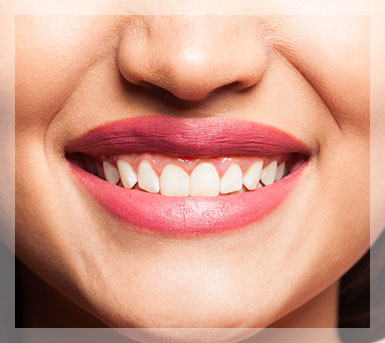Gingivitis is the earliest and mildest form of gum disease. Typical symptoms include red, swollen and bleeding gums after brushing and flossing your teeth, accompanied by bad breath.
The good news is that gingivitis related to plaque buildup can be easily treated and prevented. There are lots of ways to help protect yourself. Gingivitis treatment includes stepping up your oral hygiene, some natural home remedies, over-the-counter products, a gingivitis-fighting diet and regular visits to the dentist. Treating gingivitis is possible by giving your gums and mouth some TLC and maintaining good oral hygiene.
Learn more about gingivitis and what causes gingivitis.
Gingivitis Treatment – How to Fix Gingivitis Fast
-
1. Follow the Two-Minute Rule
Regular brushing twice a day is the first step to good oral hygiene and removing the dental plaque that causes gingivitis. Experts recommend you brush gently for around two minutes twice a day, using a soft bristled tooth brush. Take special care to brush all the sides of your teeth – including the inner and outer surfaces. Change your brush or toothbrush head every three to four months.
-

-

-
2. Use a Gum Health Toothpaste
There are a number of toothpastes available, but look for a gum health one that has been specifically designed as a gingivitis treatment to help fight plaque bacteria.
Learn how to choose the right toothpaste for gingivitis.
-
3. Floss Daily
Regular flossing (at least once a day) will help to remove plaque buildup and trapped food from between your teeth, preventing the development of gingivitis. Use your floss or dental tape to get between your teeth moving it gently but thoroughly – sliding it around the surfaces of the teeth and around the gum line. Floss all teeth, particularly the ones at the back, which can be harder to reach when brushing.
-

-

-
4. Visit Your Dentist
The recommended time between dental check-ups can range from once every three months to every year. What’s right for you will depend on your current oral heath, and how vulnerable you are to developing issues in the future. Your dentist will be able to advise you on how often you should be receiving a check-up.
Regular visits allow your dental professional to be on the look-out for problems that you can’t see and prevent them from getting worse.
-
5. Rinse Your Mouth with Mouthwash
Gargling with an antiseptic mouthwash will not eliminate gingivitis on its own and cannot remove existing plaque, but it may go some way to controlling the buildup of bacteria in your mouth. Used in conjunction with brushing and flossing, antibacterial mouthwash can be another useful component in your gingivitis-fighting arsenal. Speak to your dentist about which mouthwash is best suited to you.
-

-

-
6. Try a Natural Remedy
There is some evidence that natural ingredients such as peppermint, turmeric and green tea can improve gingivitis. Peppermint naturally has antiseptic and anti-inflammatory effects, while green tea has been shown to inhibit plaque buildup as effectively as some prescription mouthwashes. Turmeric is also a known anti-inflammatory ingredient that can help reduce gingivitis-related inflammation.
-
7. Bite into Gum-Friendly Food
What you eat can have a significant effect on your general health and that of your gums and teeth. We all know that eating sticky candy or drinking gallons of sugary soda is going to damage your teeth, and some foods are more gum-friendly than others.
Vitamin C-rich foods (such as bell peppers, berries and greens) can help support your immunity and boost collagen, which is essential for wound healing. Anti-inflammatory foods containing healthy omega 3 fats – including wild salmon, eggs, nuts and seeds, avocados – can help to reduce inflammation in the body, including the gums.
-

Gingivitis Treatment – Next Steps
The case for good dental hygiene cannot be overstated when it comes to treating gingivitis. Regular brushing with a toothpaste such as periocare™ Complete Protection and regular visits to your dentist and hygienist will be money and time well spent when it comes to reversing and preventing gingivitis.
SOURCES
By clicking any of the links below you will be taken to an external website that is independently operated and not managed by GSK. GSK assumes no responsibility for the content on the website. If you do not wish to leave this website, do not click on the links below.
- Gingivitis (Symptoms & causes). Mayo Clinic. https://www.mayoclinic.org/diseases-conditions/gingivitis/symptoms-causes/syc-20354453?page=0&citems=10. Accessed 24/02/20.
- Gum disease. NHS. https://www.nhs.uk/conditions/gum-disease/. Accessed 24/02/20.
- Brushing Your Teeth. Mouth Healthy. https://www.mouthhealthy.org/en/az-topics/b/brushing-your-teeth. Accessed 02/01/20.
- Preventing periodontal disease. American Academy of Periodontology. https://www.perio.org/consumer/prevent-gum-disease. Accessed 24/02/20.
- Why Should I Use Dental Floss? NHS. https://www.nhs.uk/common-health-questions/dental-health/why-should-i-use-dental-floss/. Accessed 24/02/20.
- Treatment – gum disease. NHS. https://www.nhs.uk/conditions/gum-disease/treatment/. Accessed 24/02/20.
- Dental check-ups. NHS. https://www.nhs.uk/live-well/healthy-body/dental-check-ups/. Accessed 24/02/20.
- Scaling and root planning. Mouth Healthy. https://www.mouthhealthy.org/en/az-topics/s/scaling-and-root-planing. Accessed 24/02/20.
- Antimicrobial efficacy of five essential oils against oral pathogens: An in vitro study. NCBI. https://www.ncbi.nlm.nih.gov/pmc/articles/PMC4054083/. Accessed 24/02/20.
- Efficacy of chlorhexidine and green tea mouthwashes in the
management of dental plaque-induced gingivitis: A comparative clinical
study. Contemporary Clinical Dentistry. https://www.ncbi.nlm.nih.gov/pmc/articles/PMC4678549/. Accessed 06/25/19.
- Role of curcumin in systemic and oral health: An overview. Journal of Natural Science, Biology, and Medicine. https://www.ncbi.nlm.nih.gov/pmc/articles/PMC3633300/. Accessed 06/25/19.
- Diet and Dental Health. Mouth Healthy. https://www.mouthhealthy.org/en/az-topics/d/diet-and-dental-health. Accessed 02/01/20.
- Vitamin C. National Institutes of Health. https://ods.od.nih.gov/factsheets/VitaminC-HealthProfessional/. Accessed 02/01/20.
An oral health optimized diet can reduce gingival and periodontal inflammation in humans - a randomized controlled pilot study. BMC Oral Health.
*compared to a sodium monofluorophospate toothpaste and professional cleaning











